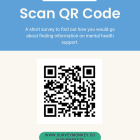What's this about an Education Exchange?

We’re surrounded by interesting people doing interesting things, which is a nice place to be. We speak to educators – hailing from the universities, colleges and schools, the evening classes, informal workshops and skills-based sessions. We talk to the learners – people young and old, some who quit school at 16 or before, some who went on to do degrees, some who don’t see education as something that happens in a classroom. What unites these people? A desire to learn and to share knowledge. But as yet we don’t have an effective way to link up the learners with the educators, and to make learning accessible for people whatever their background and needs.
This is where the idea for a mental health friendly ‘Education Exchange’ comes in (although it might end up having a different name!).
The idea grew out of conversations with the community. It’s been talked about for a good few years, especially in the offices of our funders Sheffield Health and Social Care, who are already running a successful Recovery College which they’re keen to take further.
In June we took the first step, as part of a cross-organisational partnership, in making the Education Exchange real. We invited anyone and everyone to join us at a ‘Conversation Cafe’, an opportunity for us to talk about the idea without our work hats on.
Sitting around on tables with key headings: the How, What, Who and Why, we encouraged guests to write on their tablecloths and talk openly and honestly. We talked about all the different education, skills and training sessions in the city which are mental health friendly, but that no one knows about. We talked about all the sessions we wish existed but have yet to be set up. Most importantly, we talked about the values and the bottom line.
Rolling with the theme of ‘building’ an Education Exchange, we asked people to write the things they thought would be most important in building this project on bricks (see above!). We’ll be taking these on with us as we begin with some more practical steps for building an Education Exchange. But here are a few of our favourite thoughts:
“Education is social”
“Identify gaps and overlaps in provision”
“Reducing inequalities and barriers to learning”
“Make failing ok, and make learning fun”
If you’d like to be part of building this project sign up to our newsletter to be kept up to date.


